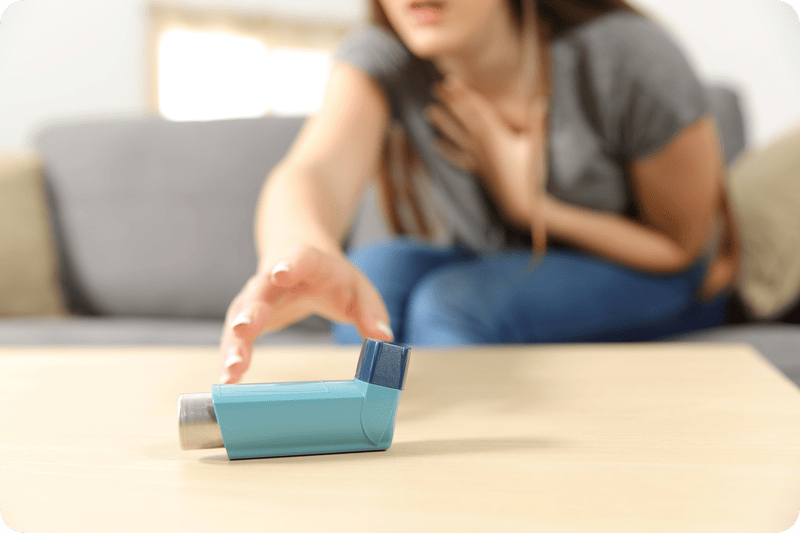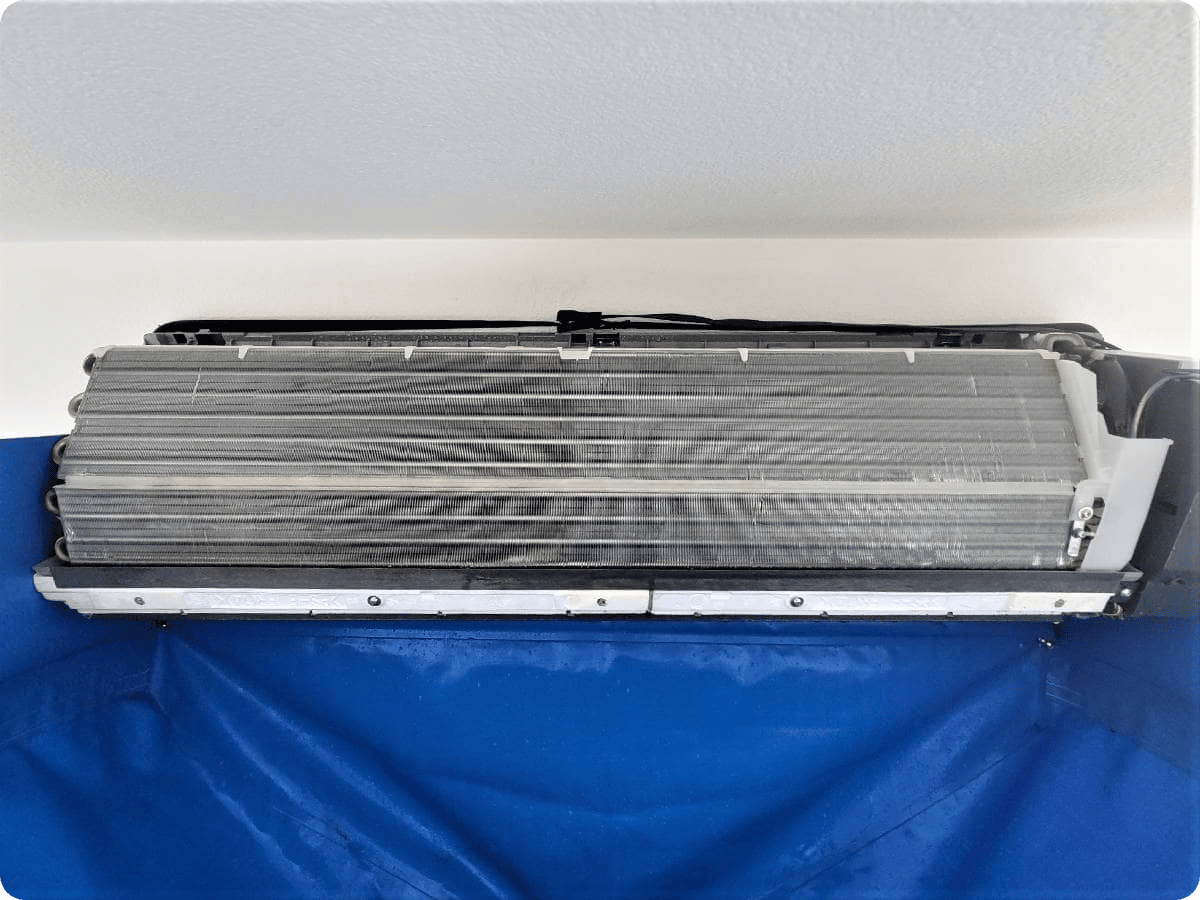How To Make Your Home Safe From Mother Nature’s Common Asthma Triggers
 Let’s face it: Mother Nature is no friend to people with asthma. Sure, manufactured chemicals and toxins may trigger attacks. But there are plenty of hazards in the natural world that do the same.
Let’s face it: Mother Nature is no friend to people with asthma. Sure, manufactured chemicals and toxins may trigger attacks. But there are plenty of hazards in the natural world that do the same.
And, some of them may surprise you. For instance, did you know that a thunderstorm can cause asthma attacks for thousands of people at once?
Or, how wildfires on the west coast and here in Idaho affect people with asthma?
This article discusses common (and surprising) asthma triggers out there thanks to Mother Nature. We’ll also discuss preventing attacks and steps you can take to remove many natural triggers from your home.
Improving indoor air quality is an essential part of what we do here at HydroKleen208. If you’re concerned about the air quality in your home near Cascade, ID or Boise Metro, give us a call at (208) 779-5596.
Related: Excellent Indoor Air Quality Is Crucial For People With Asthma
Wildfires
Wildfires are unhealthy for everyone. Even if you’re hundreds of miles away, the smoke and ash can irritate your nose, throat, eyes, and lungs. People with asthma, COPD, or other respiratory issues get it even worse.
In particular, the smoke and ash irritate and inflames your lungs. These conditions make it much harder to breathe, which triggers asthma attacks. What’s worse is that the smoke lingers for days or weeks. That means prolonged exposure.
Here in Idaho, wildfires are a big problem, especially in the summer. Not only do we deal with wildfires in our state. We also get pollution from fires in nearby Washington, Oregon, and California.
How To Prevent
For starters, stock up on air filters for your heating and cooling system early in the year. Even a basic filter helps screen out smoke and ash in your house. But if there’s a shortage by spring, you’re stuck when wildfire season hits.
You can keep track of wildfires in Boise Metro or Valley County by following the news or checking Idaho’s wildfire site. And in general, you can check your air quality by zip code any time using this site.
If you have a mini split system, you wash and reuse your filter. In that case, clean it more often when there’s wildfire smoke nearby. And, we’ll talk more about mini split cleaning later on.
Next, keep some particulate respirator masks on hand. Those would be N95 or P100 masks. Cloth masks don’t work nearly as well.
Epidemic Thunderstorm Asthma
Believe it or not, a severe thunderstorm can trigger asthma attacks. Technically it’s not the storm itself. The culprit is usually pollen.
Heavy rain and sudden changes to temperature or humidity cause pollen grains to open and release high amounts of pollen at once. Then, high winds spread the pollen, and fungal spores, quickly.
Thunderstorm asthma isn’t the most common problem for people with asthma. It doesn’t occur with every storm, nor does it always happen on a day when the pollen count is high.
However, epidemic thunderstorm asthma made headlines a few years ago in Australia, which is home to our parent company, HydroKleen Global. Ten people died as a result, and the event sent thousands of people to the emergency room.
How To Prevent It
Since thunderstorm asthma isn’t common, you don’t need to worry every time the weather calls for showers. But, if there’s a heavy storm on the way in spring and summer, or when there’s a high pollen count, take some extra precaution.
Make sure you have your inhaler
- Use preventer medication if you have it
- Try not to go outside and keep your windows closed
- Remove your shoes when you get home
- Make sure the air filters in your HVAC system are clean
Related: Breathe Smarter Thanks To New Asthma Treatment Technology
Pollen And Other Allergens
Most people think about pollen as a problem for people with allergies. But, asthma and seasonal allergies are a common combination. Airborne allergens trigger asthma attacks, too.
When you have a pollen allergy, your body reacts to this harmless substance as if it’s an invader like a virus or something else that can make you sick.
Your immune system pumps out chemicals to fight the invasion. That results in itchy eyes, runny noses, and congestion.
The problem is that reaction also affects the lungs and airways, triggering an asthma attack.
How To Prevent It
We already mentioned some strategies for high pollen count days. There are also some basic precautions:
Check the pollen account and air quality forecasts every day. Pay close attention in the spring and summer.
Use a particle mask when gardening. You’re likely to encounter pollen near plants, so take extra care.
Have your rescue medication ready. Make sure your inhaler or albuterol is nearby on high pollen count days. If you’re having severe reactions, your doctor can recommend stronger treatments.
Stick to a regular cleaning regimen at home. Wash your sheets weekly, vacuum rugs, and wipe surfaces with a damp cloth.
Mold, Mildew, Fungus, And Bacteria
Mold, mildew, fungus, and bacteria all irritate your lungs and airways. They cause inflammation the same way pollen does. Too much exposure makes anyone feel sick, plus it’s an asthma trigger.
Related: Symptoms And Warning Signs Mold Toxicity Or Poisoning
How To Prevent It
Once again, a regular cleaning regimen helps keep many of these natural irritants at bay. In particular, you also want to eliminate conditions in your home that make it easy for mold and fungus to thrive.
That means looking for — and clearing out — any space that’s warm, moist, and dark.
Check the corners of your basement and behind your washing machine, dryer, and refrigerator. And, if you have a mini split, we have more information for you.
Mini Split Cleaning Remove Asthma Triggers In Homes With Ductless HVAC
The insides of mini split air handlers are excellent breeding grounds for mold, mildew, and other microbial contaminants. And, it’s a bigger problem than many people here in the U.S. realize yet.
The insides of these units are warm, moist, and dark. They’re also nearly impossible to clean.
When you clean the filter, as you should, you’re only addressing that component. Even professional maintenance only scratches the surface.
It would take your HVAC tech hours to disassemble the entire unit to reach everywhere. And to clean the grooves between every fin on the coil — that’s where we find large buildups of mold, mildew, fungus, and more.
Here’s a typical photo of an air handler we cleaned. Partway through, we took a picture showing how dirty it gets — and how much of a difference a deep clean makes.

We’re able to do this thanks to our customized equipment and cleaning agents. Our sprayers can reach in and around every part of the air handler. So, we can clean the entire thing (plus your heat pump outside) without taking it apart.
Related: How Often Should A Mini Split Be Cleaned?
Meanwhile, our cleaning agents eradicate microbial contaminants. But, they’re 100-percent non-toxic and safe for the environment.
So, we’re not pumping your home full of chemicals that will make you sick. And, you don’t need to worry about your town’s water when we flush everything out.
Related: HydroKleen’s Process And Cleaning Agents Are Non-Toxic And 100-Percent Environmentally-Safe
We mentioned our parent company, HydroKleen Global, earlier. They’ve spent more than a decade in research and development. Now, HydroKleen208 brings that expertise to Valley County and Boise Metro.
Mini Split And Heat Pump Cleaning In And Around Cascade, ID
HydroKleen208 provides the world’s most effective mini split and heat pump cleaning for homes and businesses in Cascade, ID and anywhere in the Treasure Valley. If you’re not satisfied, it’s free. Click below for an appointment or call (208) 779-5596 to learn more.
